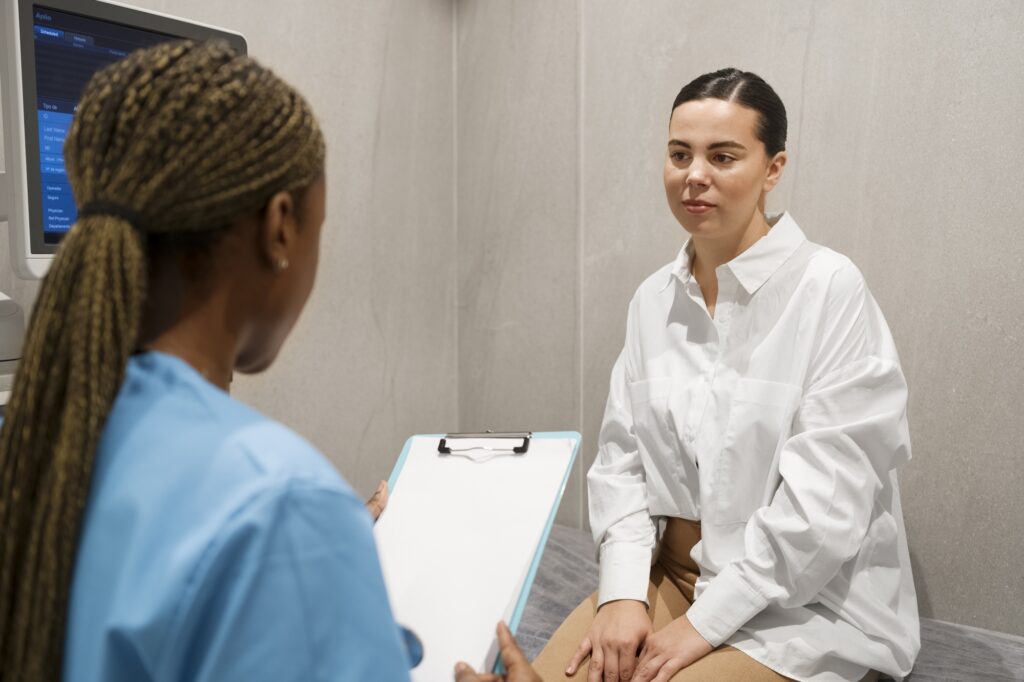Endoscopic Mucosal Resection in Dallas, TX
What is endoscopic mucosal resection?
Endoscopic mucosal resection (EMR) is an outpatient procedure that allows doctors to remove tumors just below the gastrointestinal (GI) lining without an operation. With an endoscope (a flexible, cylindrical tool), our Digestive Health Associates of Texas gastroenterologists (doctors who specialize in treating the GI tract) can see into the body with a major level of detail. At the same time, they can withdraw growths, such as upper GI or colon polyps, that might otherwise call for an operation. Most people return home the same day. Since there is no incision, you could improve more quickly, and with less pain when compared to traditional or laparoscopic surgery. If you need to schedule an endoscopic mucosal resection in Dallas, TX, or another exam used to address the gastrointestinal tract, please reach out to our office to request a consultation at a Digestive Health Associates of Texas location in your area.

What are the benefits of endoscopic mucosal resection?
This procedure is a less invasive alternative to surgery for removing unusual tissues from the lining of the gastrointestinal tract. Your provider may suggest a method to remove certain initial-level cancers or precancerous growths.
Some of the diseases that EMR has been utilized to treat include:
- Colon cancer
- Barrett’s esophagus
- Gastric (stomach) cancer
- Colon polyps
- Esophageal cancer
- Noncancerous tumors of the uterus (leiomyomas)
- Cancer of the small intestine (duodenum)
If you have any one of the above diseases and wish to discover more about this process, call Digestive Health Associates of Texas today.
What are the dangers of endoscopic mucosal resection?
Risks of endoscopic mucosal resection include:
- Constricting of the esophagus: Removing certain esophageal growths can enhance the danger of scarring, which narrows the esophagus. This could lead to difficulty swallowing and require additional treatment.
- Puncture (perforation): There is a small danger of a puncture through the lining of the gastrointestinal tract, based on the size and position of the lesion that is taken out.
- Bleeding: This is the most common difficulty and can oftentimes be discovered and rectified during the process.
Contact your Dallas, TX gastrointestinal provider or get urgent care if you experience any of the following signals or symptoms after you undergo an endoscopic mucosal resection:
- Chest or abdominal pain
- Trouble breathing
- Fainting
- Bright red blood in the stool
- Fever
- Throwing up
- Black stool
- Chills
To discuss questions or concerns you have regarding the risks involved in an endoscopic mucosal resection, please contact your Digestive Health Associates of Texas provider.
When will I get the findings of my endoscopic mucosal resection?
A follow-up appointment with your GI specialist at Digestive Health Associates of Texas will be scheduled to talk over the results of your endoscopic mucosal resection and the outcomes of any lab tests done on tissue samples. Questions to raise with your doctor include:
- How will you check my status?
- If I have cancer, will I need supplementary treatments?
- What were the findings of the laboratory exams? Do I have cancer?
- Were you able to extract all abnormal tissue?
- Do I need to see a cancer doctor (oncologist)?
Typically, you will have an additional upper endoscopy or colonoscopy a few months after your endoscopic mucosal resection to be sure the entire lesion is eliminated. During your first procedure, your doctor may stain the section of the removed polyp with ink (tattoo) so that the area can be easily checked during any subsequent procedures. The need for more appointments will be determined by the outcome of these results.
